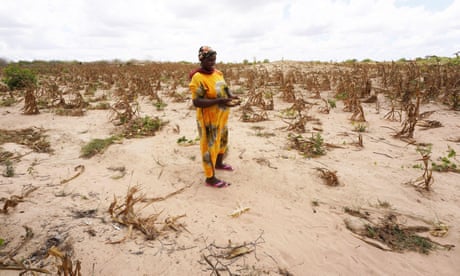It is essential that we scale up action on key transitions and investment pathways to accelerate progress.
Both regionally and nationally, we are seeing opportunities for critical transitions that can turbocharge progress.
I will highlight four areas in particular.
First, inclusive and sustainable energy. African countries are making tangible progress in securing access to sustainable energy.
Access to electricity rose by nearly 10% in the last six years. But although Africa is home to 60 per cent of the worlds most coveted solar resources, the continent only attracted 2% of global investments in renewable energy over the last two decades.
We are also home to a significant proportion of the minerals critical to the global renewables revolution. The electric vehicles value chain is estimated to be worth nearly $60 trillion by 2050. A huge potential market for African renewables.
But resource extraction must not undermine the livelihoods of the vulnerable. The Secretary-Generals panel on Critical Energy Transition Minerals is critical to ensure that we do not repeat past patterns of exploitation.
Sustainable food systemsSecond, sustainable food systems. After a long period of improvement, hunger has worsened substantially in Africa.
About 280 million people are undernourished, an increase of 57 million since the COVID-19 pandemic. Small farmers are under pressure from climate change.
But significant progress has been made in advancing food system transformation across Africa.
Various African initiatives are embedding food systems transformation across sustainable development strategies and plans.
Positive examples are the African Union Commissions Regional Nutrition Strategy and the African Common Position on food sovereignty and resilience.
42 African countries have developed national pathways to implement the UNs vision under the Food Systems Summit and the recent Call to Action resulting from the Food Systems Stock Take +2.
Digital trailblazersThird, digital connectivity. There are trailblazers but the divide between and within African countries remains significant.
National digital strategies in Ghana, Kenya, Nigeria, South Africa and Rwanda are great examples of how we can shape investment pathways at scale across the region.
Fourth, education. The AUs decision to make 2024 the African Year of Education and its comprehensive ten-year Continental Education Strategy for Africa speaks to the strong recognition of this fact by African leaders.
So too does the progress being made in the area of education by several countries from Sierra Leone to Kenya, Cote dIvoire and Namibia.
And at the heart of all of this, like so much else, is finance.
Rethinking global architectureNow is the time to rethink austerity-oriented international policies, reduce debt-servicing costs and ensure a more equitable global taxation system so that African countries can do what we know that want to do: to invest more, more efficiently and more equitably.
Across this work, the UN development system is your trusted partner.
The inclusion of the African Union in the G20 and the addition of an extra seat for sub-Saharan Africa at the IMF are also of major importance for the voice of Africa and for that of the Global South.
Our voice will be essential in the lead up to the Summit of the Future, and at the fourth international Conference on Financing for Development and the second World Summit on Social Development in 2025.











